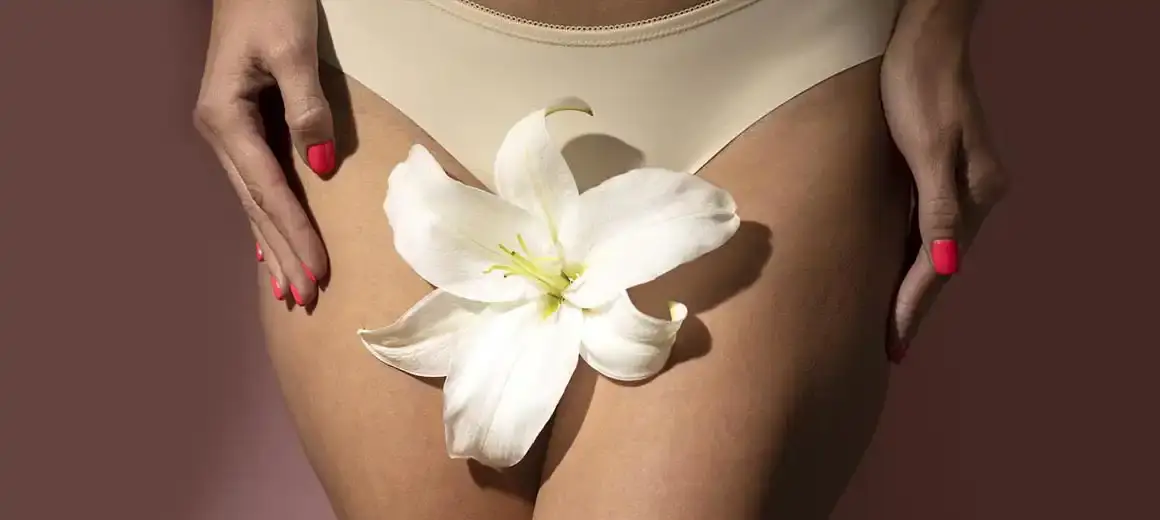What Are The Vaginal Changes That Occur With Age?

Image Credits: Image by Freepik
- December 27, 2022
- by The Ginger-U Team
Your body shows signs of aging, like wrinkles, gray hair, and sagging skin. However, aging changes the vagina and vulva too. Surprised to know? Well! The hormonal ups and downs affect the feel and function of your vagina. Read on to learn how aging affects your vagina.
How Does Your Vagina Change As You Age?
Most women go through four stages of hormonal changes—puberty, menstruation, pregnancy, and menopause. Exceptions may be there because of certain health issues; however, these are the primary stages of hormonal changes in women. Each of these changes affects your vagina differently.
Changes To The Vaginal Area During the 20s and 30s
In these years, the body produces enough estrogen and progesterone. Therefore, vaginal changes include more discharge because of adequate amounts of estrogen coursing through your body.
Many women also get pregnant for the first time between their late 20s and 30s, affecting the look and feel of their vagina. Changes in estrogen levels post-pregnancy and during breastfeeding can cause vaginal dryness. What does vaginal dryness feel like? You may ask. It makes your vagina feel rough, itchy, and irritated and can result in pain during sexual intercourse. Alternatively, women using hormonal methods of contraception may also experience vaginal dryness.
Besides, women who give birth vaginally may also experience vaginal laxity. It generally occurs after pregnancy because of stretched and weakened pelvic floor muscles. These muscles support the abdominal organs, including the rectum, and act as a continence mechanism to the urethral, anal and vaginal openings (in females). During vaginal birth, the pelvic floor muscles can stretch, tear, or distend in the vagina to make space for the baby's head to come through. This makes the vagina slightly looser, saggy, or roomier, also called vaginal laxity.
Vaginal Changes During the 40s and 50s
Estrogen levels start decreasing during your 40s and 50s, giving way to perimenopause, the period before menopause. The average age of menopause is 51. The estrogen loss leads to the loss of vaginal collagen and natural lubrication, making the vagina dry, thinner, and sore or painful during sex. Menopause-led vaginal changes also cause shrinkage of the vagina and clitoris, thinner and saggy labia, and weaker pelvic floor muscles.
Note that irrespective of age, the risk for infections remains if the vaginal pH increases and makes the vaginal biome more acidic. Lack of hygiene may also cause infections like bacterial vaginosis (BV).
8 Tips To Keep Your Vagina Healthy
Are you thinking about how to ensure vaginal Health as you age? Here are a few valuable tips for you.
Wash your lady parts once a day using mild soap and water.
Use lubricants when experiencing vaginal dryness because of hormonal fluctuations.
Use a vaginal moisturizer or topical estrogen to rehydrate vaginal tissue.
See your gynecologist when experiencing vaginal itching, redness, foul smell, excessive discharge of any color, irritation, or pain during sex.
Do Kegel exercises to restore pelvic muscle strength.
Have more sex because no or minimal sex makes the vagina less elastic and the vagina more rigid. Sex helps maintain vaginal tissue health.
Say no to smoking as it further lowers estrogen levels and intensifies the effect of aging on vaginal Health.
Take vagina-friendly nutrients such as vitamin D, vitamin E, and Omega-3.
Conclusion
Aging-related vaginal changes are inevitable. However, taking care of your reproductive Health may help minimize the impact of aging on the vagina. It is prudent to consult your healthcare provider at the earliest when experiencing vaginal health problems.

Comment